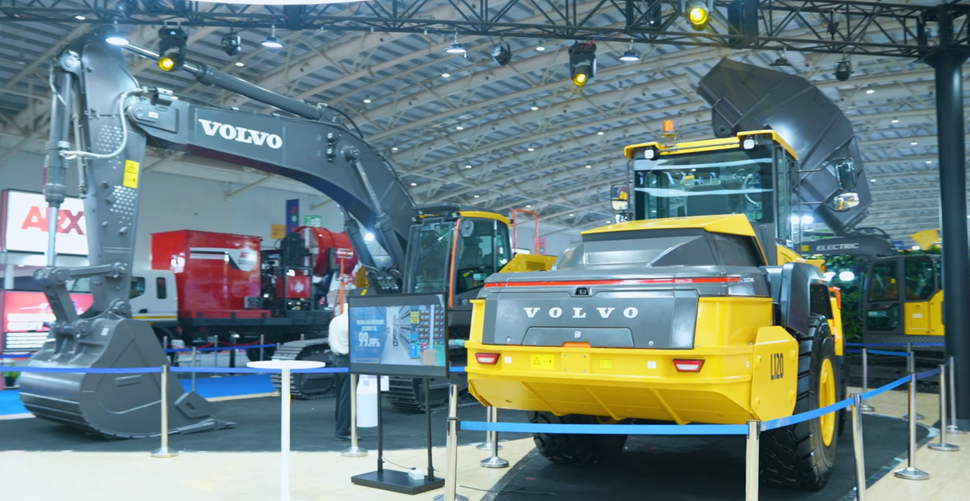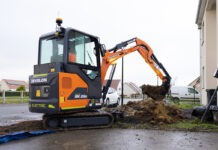Volvo Construction Equipment (Volvo CE) has reported improved earnings and stable sales in Europe and North America for Q4, 2023 – as softer industry demand begins to show its influence on the global market.
For the full year 2023, Volvo CE has achieved an increase in annual net sales from 2022, despite a drop in sales for the last quarter, impacted as it has been by a weaker market landscape across many regions in the world. While global machine sales are slowing across the industry, service sales for Volvo CE have risen – once more demonstrating their increasing relevance. Europe, North America, Africa and Oceania are reporting steady but softening sales, while Asia and South America are seeing the biggest decline due to slower economic activity.
In Q4, 2023 global net sales dropped by 4% to SEK 26,578 M (27,596), of which net sales of machines decreased by 6% while service sales increased by 6%. Adjusted operating income amounted to SEK 3,320 M (3,093) corresponding to an adjusted operating margin of 12.5% (11.2). For the full year 2023, net sales rose to SEK 104,981 M (100,261). Adjusted operating income amounted to SEK 16, 993 M (13,244) with an adjusted operating margin of 16.2% (13.2).
Despite an increase in orders in North and South America – largely due to the low order intake from Q4, 2022 that was driven by unpredictable supply chains – overall global net order intake has remained low, declining by 26%. This has been primarily caused by lower demand in China and cautiousness among customers and dealers in Europe. Deliveries have also decreased by 27% in Q4 due to the general weakening demand in China and Europe, as well as the slowdown in Brazil.
A solid foundation for transformation
Volvo CE is well positioned to maintain its influence on the industry transformation, while securing a steady financial foundation in what will be a challenging market landscape for everyone in 2024. It has taken further significant steps to decarbonize construction in 2023, by establishing net zero partnerships with customers such as CRH and Heidelberg Materials to help them reduce their operational emissions.
The company has also continued its rollout of electric construction solutions and introduced zero-emission machines to new regions including Australia and UAE. In December, an agreement was reached for the Ammann Group to acquire Volvo CE’s global ABG Paver Business including ABG in Hameln, Germany. Still subject to regulatory approval, it is a move that will allow Volvo CE to focus its attention on developing sustainable solutions and future technologies.
Melker Jernberg, President of Volvo CE, said: “The progress and milestones we have made in 2023 will prepare us for the challenges of 2024. There is no doubt our industry is coming into the new year faced with a weaker market landscape, but now more than ever we will show our ability to perform for today while transforming for tomorrow.”
Market development
In Q4, the total market was flat or negative in most regions, with North America and Asia outside of China reporting only slight increases. The North America market softened in the final part of the year, reporting only a 7% increase, due to a deferral of fleet replacement as interest rates and inflation remain high, while in Europe the market fell by 1% from a high level driven by cautiousness among end customers.
South America dropped by 24% in market development following low investment levels in Brazil, while China saw the largest fall of 40% due largely to slower economic activity. Other Asian markets remained flat at 4%, thanks to a slowdown in markets such as South Korea and Indonesia and despite an increase in demand in India, Japan and the Middle East.
Table 1. Volvo Construction Equipment, net sales by market area, in Millions of Swedish Krona (SEK).









